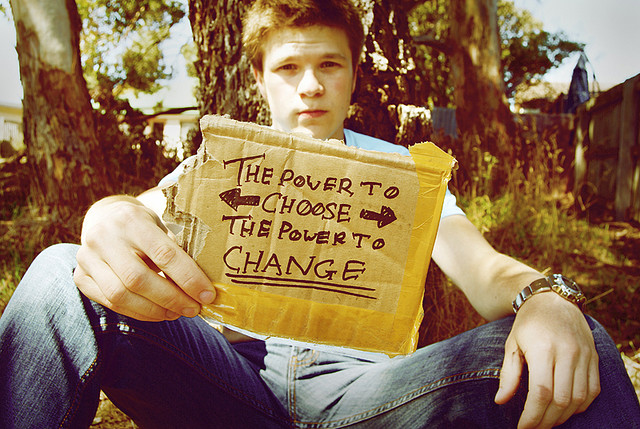The human constructs of religion and spirituality portray a vast influence on society and consumption of lifestyle trends.
Ultimately, they offer a solution to individuals receiving what they desire in life. They cater to the human desires of being a good person, and having the personal ability to be an influential, positive force in the world. In other words, they represent a means to an end.
Modern day offers numerous options for exploring human needs through the intelligent remarketing and repackaging of already existing ideas and resources. This is done intentionally in order to maintain the illusion of choice, while hiding that the core product or idea is generic, mass-produced, and of poor quality.
Important questions to ask for understanding where our personal beliefs and perspectives come from:
- What are our beliefs about what a person is? Are they science-based? A divine creation, or a combination of both?
- What is the world? How do we view our external reality in regard to the human experience, initiative, and social/political/religious/spiritual structure.
- How do these two things relate? How do our beliefs around the two questions above shape our motives and justifications? Individuals hold differing beliefs about the blueprint of the world; for example, the world may be viewed as a hierarchy, path to salvation, Eden’s paradise, or computer hologram. This belief governs our opinions of what is of value in society versus what is not.
- Is it safe? Do we feel safe and protected or in danger? What is the severity and consistency of these feelings?
Most cultures answer these questions in a similar fashion, but apply different language, myths, symbols, and means of communication.
This is similar to how Burger King is across the street from McDonald’s, giving us the feeling of choice. Ultimately, they are supplied by the same restaurant supply company, but packaged differently.
Niche products have a smaller mass appeal because many people do not possess the education to appreciate subtle nuances, which only those who have enthusiast tendencies would have taken the time to acquire.
Right now, I’m drinking a tea from the 60s that is aged, fairly expensive, and would be considered a high-quality, specialty product. If I were to attempt to make this mainstream it would be difficult as the supply is limited. In addition, it would require more finances to implement regular availability of such a rare and niche product.
The only people who would fully appreciate this tea would be tea enthusiasts who have taken the time to educate themselves on growth, aging, palette nuances, cultivation, and medicinal properties of various teas. It would be much easier to launch a generic, low-quality, tea company, as it would lower business expenses as well as product costs.
This example can be used as an analogy to show how major religious and spiritual constructs are easily modified and diluted to accommodate the majority, increasing their global influence while decreasing their authenticity and legitimacy.
Watered-down, mainstream consciousness has implemented the persona that they are catering to specialty needs to accommodate increased interest in healthy lifestyles. An example of this would be attempting to eat more healthily by going to Wendy’s and getting a chicken salad, instead of ordering at McDonald’s. We may feel we have the choice to choose something better, yet we are still consuming chemical-ridden junk food that is marketed to indicate otherwise.
Essentially, core beliefs about who we are as individuals, and how we view our relationship to the world, are fundamental factors in dictating what we value, the products and lifestyles we choose to adapt, and our personal motives and justifications for these decisions.
Acknowledging the influence of subtle human constructs such as religion and spirituality is a necessary step to simplifying and clarifying one’s relationship in order for any level of personal growth, healing, or transformation to take place.
~
Author: Brandon Gilbert
Image: Simon Greening/Flickr
Editor: Lieselle Davidson







Read 0 comments and reply